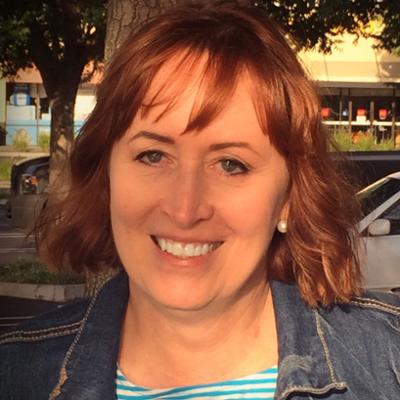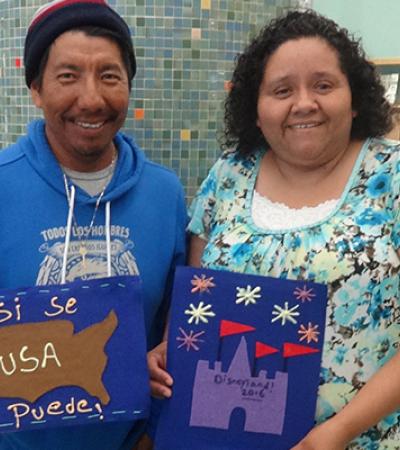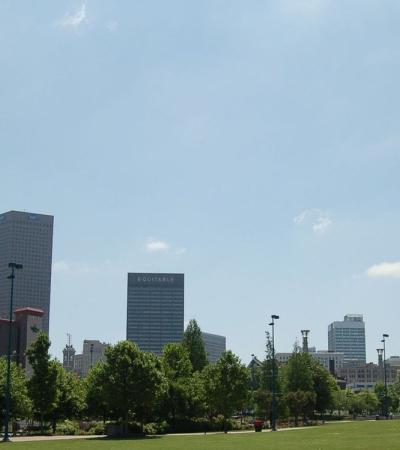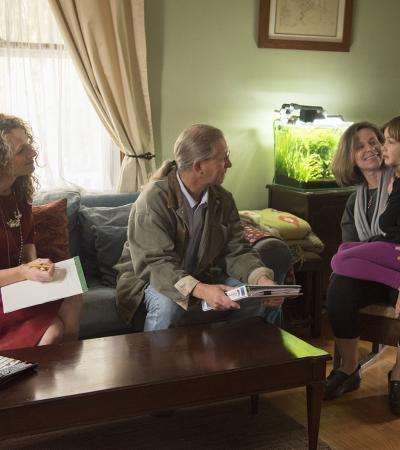In 2016, Sacramento Public Library Deputy Director Kathy Middleton took part in a three-day workshop with The Harwood Institute for Public Innovation, a nonprofit organization that helps people and organizations solve pressing problems and change how communities work together.
Middleton hoped to use the Harwood Institute’s approach, called “Turning Outward,” to learn how the library could better serve people with disabilities. Here, she shares how what she learned in the workshop led to concrete changes at her library.

Programming Librarian: What made you get involved in community engagement in this way?
Kathy Middleton: When I first heard about the Harwood Institute in May 2016, I was curious. I knew their approach entailed going out into the community and asking questions, but I didn’t really know how it worked. Still, I thought it could be a way for us to better reach the disability communities in Sacramento. Our library already had Sensory Story time and family-friendly movies, but we wanted to offer more for people with disabilities and their families. But we knew we needed more information before we could do that — we didn’t want to just assume we knew what this community wanted.
How did you go about learning what they wanted?
We started inviting them to conversations — the Harwood Institute calls them Community Conversations, and they have a series of 10 questions that you can ask or adapt. One of the conversations was with a group of parents of children with autism. We met at a children’s museum, and the kids got to play in the museum while the parents talked, and the parents could see what the kids were doing through a window. Plus there was museum staff there to supervise. It was a comfortable environment for everyone.
Those parents really opened up to us that day. It was one of the most important conversations I’ve ever been part of. One of the things I heard was, “We just want to be accepted in the community. We just want to be included.” The parents were talking about how they had trouble getting kids to come to their children’s birthday parties. So right there, at the table, they made plans to go to someone’s birthday party the coming Saturday. They had never met before that conversation, and they were making connections right there. It was really powerful.
That was just one of the conversations. We had a number of them, all around Sacramento, in library branches and offsite, on evenings, Saturdays, whenever we could get them. We kept hearing the same three things: they wanted to be accepted and included in the community, the wanted a central hub of information and resources, and they wanted more opportunities to get involved in community activities.
Well, those are pretty easy things for a library to support. It seems simple now, but we didn’t know until we heard it.
How have things changed at your library as a result?
People wanted a hub of information, so we started what we call “Hub Libraries.” Of our 28 Sacramento Public Library branches, 7 are now Hubs, meaning they have extra resources for people with disabilities. In addition to offering Sensory Story times, Library Insiders (programs for adults with disabilities), Family-Friendly movies, staff are knowledgeable about resources for the disability community; they offer library tours, they do special outreach and they establish partnerships with disability organizations. All of our libraries have sensory toys at the information desk and all staff have participated in disability awareness training. The SPL AccessABILITY team deserves the credit for making all of this happen.
Making contact with new people has helped us wrap our heads around what people need and how to better serve them. And people are responding. We’ve seen an increase in attendance of our Sensory Story times and the Stay-and-Plays after Story time, and more special education groups are coming to visit the libraries.
What do you have planned for the future?
We hope to have 80 conversations by the end of 2019 — general conversations, not just with the disability communities. It’s kind of addicting once you get started!



